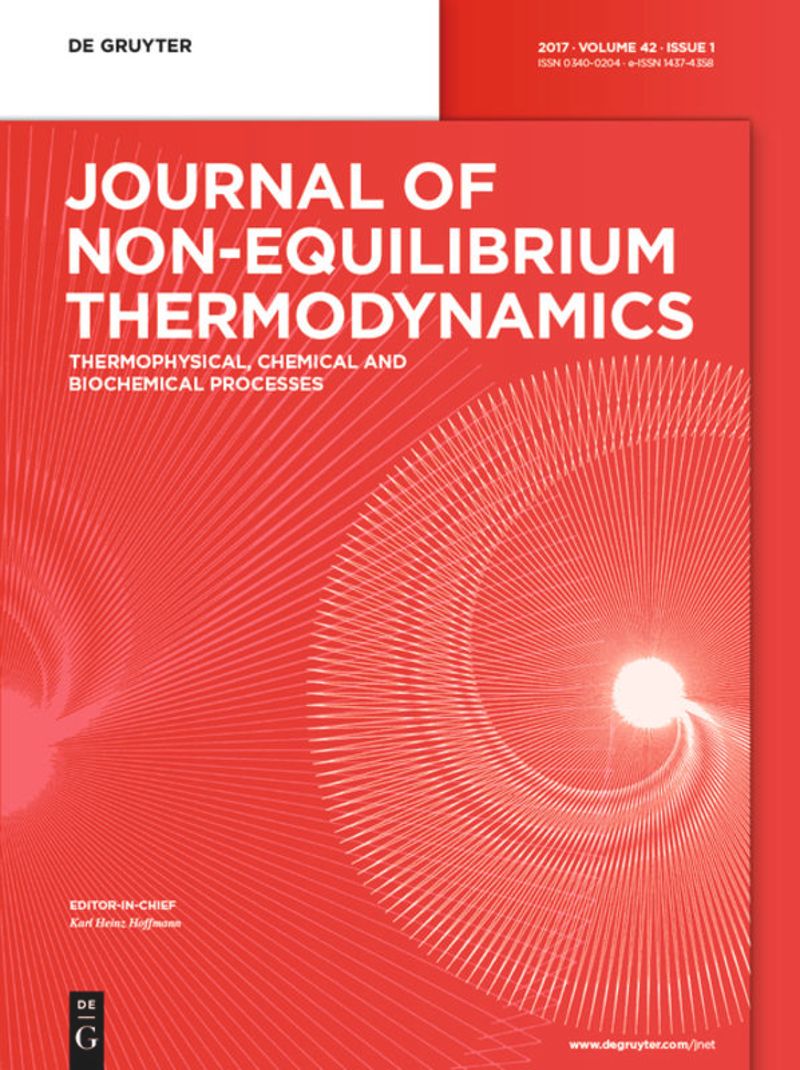Thermoeconomic optimization with a dissipation cost
IF 4.3
3区 工程技术
Q1 MECHANICS
引用次数: 0
Abstract
Abstract From a finite-time thermodynamics perspective, a thermoeconomic analysis of a Novikov model employing a linear heat transfer law is carried out. A new component in the cost function is proposed to examine its relationship with waste management while operating in the maximum power, ecological, and efficient power regimes. The methodology consists of optimizing the profit function by including our new waste management cost function, leveraging the same method used by DeVos (“Endoreversible thermoeconomics,” Energy Convers. Manage., vol. 36, pp. 1–5, 1995) and Pacheco et al. (“Thermoeconomic optimization of an irreversible novikov plant model under different regimes of performance,” Entropy, vol. 19, p. 118, 2017). Searching for the optimal thermoeconomic efficiencies for the ecological case a novel numerical method developed by the corresponding author (A. M. Ares de Parga-Regalado, “Analytical approximation of optimal thermoeconomic efficiencies for a novikov engine with a Stefan–Boltzmann heat transfer law,” Results Phys., 2023) is used. Analytical expressions for the optimal efficiencies are obtained, and the impact of the proposed term on these values is investigated.有耗散成本的热经济优化
摘要 从有限时间热力学的角度,对采用线性传热规律的诺维科夫模型进行了热经济分析。在成本函数中提出了一个新的组成部分,以研究其与废物管理的关系,同时在最大功率、生态和高效功率状态下运行。该方法包括利用 DeVos 使用的相同方法("Endoreversible thermoeconomics," Energy Convers.Manage.》,第 36 卷,第 1-5 页,1995 年)和 Pacheco 等人(《不同性能状态下不可逆诺维科夫工厂模型的热经济优化》,《熵》,第 19 卷,第 118 页,2017 年)所使用的方法。为寻找生态情况下的最佳热经济效率,使用了由通讯作者开发的一种新型数值方法(A. M. Ares de Parga-Regalado,"具有斯特凡-波尔兹曼传热规律的诺维科夫发动机最佳热经济效率的分析近似",《成果物理》,2023 年)。得出了最佳效率的分析表达式,并研究了拟议项对这些值的影响。
本文章由计算机程序翻译,如有差异,请以英文原文为准。
求助全文
约1分钟内获得全文
求助全文
来源期刊
CiteScore
9.10
自引率
18.20%
发文量
31
审稿时长
1 months
期刊介绍:
The Journal of Non-Equilibrium Thermodynamics serves as an international publication organ for new ideas, insights and results on non-equilibrium phenomena in science, engineering and related natural systems. The central aim of the journal is to provide a bridge between science and engineering and to promote scientific exchange on a) newly observed non-equilibrium phenomena, b) analytic or numeric modeling for their interpretation, c) vanguard methods to describe non-equilibrium phenomena.
Contributions should – among others – present novel approaches to analyzing, modeling and optimizing processes of engineering relevance such as transport processes of mass, momentum and energy, separation of fluid phases, reproduction of living cells, or energy conversion. The journal is particularly interested in contributions which add to the basic understanding of non-equilibrium phenomena in science and engineering, with systems of interest ranging from the macro- to the nano-level.
The Journal of Non-Equilibrium Thermodynamics has recently expanded its scope to place new emphasis on theoretical and experimental investigations of non-equilibrium phenomena in thermophysical, chemical, biochemical and abstract model systems of engineering relevance. We are therefore pleased to invite submissions which present newly observed non-equilibrium phenomena, analytic or fuzzy models for their interpretation, or new methods for their description.

 求助内容:
求助内容: 应助结果提醒方式:
应助结果提醒方式:


